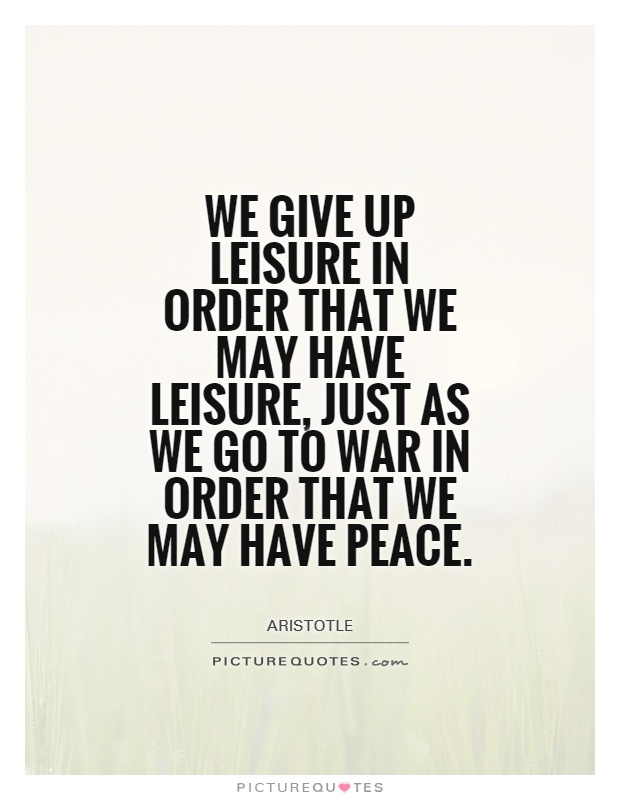We give up leisure in order that we may have leisure, just as we go to war in order that we may have peace

We give up leisure in order that we may have leisure, just as we go to war in order that we may have peace
Aristotle, one of the most influential philosophers in history, believed in the importance of balance and moderation in all aspects of life. In his works, he often discussed the concept of leisure and its role in achieving a fulfilling and virtuous life. The quote “We give up leisure in order that we may have leisure, just as we go to war in order that we may have peace” encapsulates Aristotle’s belief that sometimes sacrifices must be made in order to ultimately achieve a greater good.Aristotle understood that true leisure is not simply idleness or relaxation, but rather the pursuit of activities that cultivate the mind and soul. It is through engaging in meaningful and fulfilling activities that we can truly experience leisure and find happiness. However, in order to have the time and resources to dedicate to such pursuits, sacrifices must be made. This may involve giving up certain forms of immediate gratification or indulgence in order to create space for more enriching and fulfilling experiences.
Similarly, Aristotle draws a parallel between the sacrifices made in war and the ultimate goal of peace. War is a tumultuous and destructive force, but it is often waged in pursuit of a greater peace and stability. In the same way, the sacrifices we make in our pursuit of leisure are ultimately aimed at achieving a more fulfilling and harmonious life.
Aristotle’s teachings on leisure and sacrifice remind us of the importance of prioritizing our values and goals. By giving up certain forms of immediate pleasure or comfort, we can create space for more meaningful and enriching experiences that contribute to our overall well-being and happiness. Just as we must endure the hardships of war in order to achieve peace, so too must we make sacrifices in our pursuit of leisure in order to ultimately find true fulfillment and contentment.












 Friendship Quotes
Friendship Quotes Love Quotes
Love Quotes Life Quotes
Life Quotes Funny Quotes
Funny Quotes Motivational Quotes
Motivational Quotes Inspirational Quotes
Inspirational Quotes